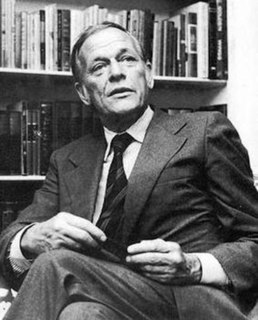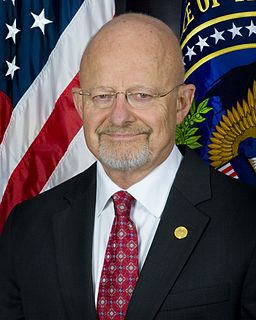Related Research Articles
Espionage or spying is the act of obtaining secret or confidential information from non-disclosed sources or divulging of the same without the permission of the holder of the information for a tangible benefit. A person who commits espionage is called an espionage agent or spy. Any individual or spy ring, in the service of a government, company, criminal organization, or independent operation, can commit espionage. The practice is clandestine, as it is by definition unwelcome. In some circumstances, it may be a legal tool of law enforcement and in others, it may be illegal and punishable by law.
CIA cryptonyms are code names or code words used by the U.S. Central Intelligence Agency (CIA) to refer to projects, operations, persons, agencies, etc.
Education in the United States of America is provided in public, private, and home schools. State governments set overall educational standards, often mandate standardized tests for K–12 public school systems and supervise, usually through a board of regents, state colleges, and universities. The bulk of the $1.3 trillion in funding comes from state and local governments, with federal funding accounting for only about $200 billion. Private schools are free to determine their own curriculum and staffing policies, with voluntary accreditation available through independent regional accreditation authorities, although some state regulation can apply.
Stargate Project was a secret U.S. Army unit established in 1978 at Fort Meade, Maryland, by the Defense Intelligence Agency (DIA) and SRI International to investigate the potential for psychic phenomena in military and domestic intelligence applications. The Project, and its precursors and sister projects, originally went by various code names—GONDOLA WISH, STARGATE, GRILL FLAME, CENTER LANE, PROJECT CF, SUN STREAK, SCANATE—until 1991 when they were consolidated and rechristened as "Stargate Project".

Charles Patrick Roberts is a retired American politician and journalist who served as a United States Senator of Kansas from 1997 to 2021. A member of the Republican Party, Roberts served 8 terms in the U.S. House of Representatives, from 1981 to 1997, before his election to the Senate.

The United States Intelligence Community (IC) is a group of separate United States government intelligence agencies and subordinate organizations, that work separately and together to conduct intelligence activities to support the foreign policy and national security of the United States. Member organizations of the IC include intelligence agencies, military intelligence, and civilian intelligence and analysis offices within federal executive departments.

Robert Michael Gates is an American intelligence analyst and university president who served as the 22nd United States secretary of defense from 2006 to 2011. He was originally appointed by president George W. Bush and was retained for service by President Barack Obama. Gates began his career serving as an officer in the United States Air Force but was quickly recruited by the Central Intelligence Agency (CIA). Gates served for 26 years in the CIA and the National Security Council, and was Director of Central Intelligence under President George H. W. Bush. After leaving the CIA, Gates became president of Texas A&M University and was a member of several corporate boards. Gates served as a member of the Iraq Study Group, the bipartisan commission co-chaired by James A. Baker III and Lee H. Hamilton, that studied the lessons of the Iraq War.
The Joint Inquiry into Intelligence Community Activities before and after the Terrorist Attacks of September 11, 2001 is the official name of the inquiry conducted by the Senate Select Committee on Intelligence and the House Permanent Select Committee on Intelligence into the activities of the U.S. Intelligence Community in connection with the September 11, 2001 attacks. The investigation began in February 2002 and the final report was released in December 2002.

The Central Intelligence Agency, known informally as the Agency and the Company, is a civilian foreign intelligence service of the federal government of the United States, officially tasked with gathering, processing, and analyzing national security information from around the world, primarily through the use of human intelligence (HUMINT) and performing covert actions. As a principal member of the United States Intelligence Community (IC), the CIA reports to the Director of National Intelligence and is primarily focused on providing intelligence for the President and Cabinet of the United States.

Thomas Wardell Braden was an American CIA official, journalist, and co-host of the CNN show Crossfire.

Harold James "Jim" Nicholson is a former Central Intelligence Agency (CIA) officer who was twice convicted of spying for Russia's Foreign Intelligence Service (SVR).

Intellipedia is an online system for collaborative data sharing used by the United States Intelligence Community (IC). It was established as a pilot project in late 2005 and formally announced in April 2006. Intellipedia consists of three wikis running on the separate JWICS (Intellipedia-TS), SIPRNet (Intellipedia-S), and DNI-U (Intellipedia-U) networks. The levels of classification allowed for information on the three wikis are Top Secret Sensitive Compartmented Information, Secret (S), and Sensitive But Unclassified information, respectively. Each of the wikis is used by individuals with appropriate clearances from the 18 agencies of the US intelligence community and other national-security related organizations, including Combatant Commands and other federal departments. The wikis are not open to the public.

John Owen Brennan is a former American intelligence officer who served as the Director of the Central Intelligence Agency (CIA) from March 2013 to January 2017. He served as chief counterterrorism advisor to U.S. President Barack Obama, with the title Deputy National Security Advisor for Homeland Security and Counterterrorism, and Assistant to the President. Previously, he advised Obama on foreign policy and intelligence issues during the 2008 election campaign and presidential transition.

James Robert Clapper Jr. is a retired lieutenant general in the United States Air Force and is the former Director of National Intelligence. Clapper has held several key positions within the United States Intelligence Community. He served as director of the Defense Intelligence Agency (DIA) from 1992 until 1995. He was the first director of defense intelligence within the Office of the Director of National Intelligence and simultaneously the Under Secretary of Defense for Intelligence. He served as the director of the National Geospatial-Intelligence Agency (NGA) from September 2001 until June 2006.
The United States Geospatial Intelligence Foundation (USGIF) is a 501(c)(3) non-profit educational foundation in Virginia dedicated to promoting the geospatial intelligence tradecraft and developing a stronger GEOINT Community with government, industry, academia, professional organizations, and individuals who develop and apply geospatial intelligence to address national security challenges. USGIF achieves its mission through various programs and events and by building the community, advancing the tradecraft, and accelerating innovation. USGIF provides a number of programs and events such as its GEOINT Symposium, an academic accreditation program for college and university geospatial programs, and other live, virtual, and hybrid programs to provide the community with the opportunity to collaborate with senior-level officials across the multiple communities and support the future of the tradecraft.

The CIA publishes organizational charts of its agency. Here are a few examples.
The highly qualified teacher provision is one of the goals of the No Child Left Behind Act (NCLB) of 2001. The term highly qualified teachers (HQT) comes from the original language of Title II of the No Child Left Behind Act. Title II of NCLB designates federal funds to educational agencies for the purpose of improving the student achievement through the professional development of highly qualified teachers and principals. To qualify for this funding, states must comply with a series of conditions stipulated in NCLB, and track their progress toward goals each state sets. Title II was originally known as the Eisenhower Professional Development Program, and has undergone several reauthorizations, though the original intent has remained relatively intact. The main goals of the highly qualified teacher provision is to ensure that every classroom is staffed by a teacher deemed "highly qualified" under conditions set by NCLB. As some point out, this section of NCLB is quite at odds with the general thrust of NCLB because it focuses on school inputs rather than student outcomes. The sections of NCLB designated to HQTs allocates the majority of the funds to the states and does not clearly define at the federal level what is and what is not a highly qualified teacher, allowing for more local definitions of this term. This provision has come under much scrutiny, as it is up to states to decide how to measure highly qualified, and states are not holding their teachers to the same level of rigor across the country. Since its reauthorization in 2001, Title II has yet to reach its stated goal of ensuring that 100% of teachers in public schools in the United States are highly qualified.

CIA University (CIAU) is the primary education facility of the U.S. Central Intelligence Agency (CIA). Founded in 2002 and located in Chantilly, Virginia, the school holds courses on various intelligence-related subjects, ranging from chemical weapons manufacturing to foreign languages. Students include CIA new hires, experienced officers, support staff, and individuals from other U.S. intelligence agencies. CIAU does not issue degrees.
For-profit higher education in the United States refers to the commercialization and privatization of American higher education institutions. For-profit colleges have been the most recognizable for-profit institutions, but commercialization has been a part of US higher education for more than a century. Privatization of public institutions has also been increasing for decades.
References
- ↑ The Chronicle of Higher Education , 25 March 2005, Cloak and Classroom
- ↑ Miami Herald , 23 June 2009, Obama gives backing to Kansas Republican's ridiculed plan
- 1 2 BBC , 2 June 2005, Fears over CIA 'university spies'
- ↑ Times Higher Education , 3 June 2005, CIA outrages UK academics by planting spies in classroom
- ↑ US News & World Report, 29 October 2006, Hey, Let's Play Ball: The insular world of intelligence reaches out for a few new ideas
- ↑ Fox News, 14 April 2009, Anti-Pork Group Announces 'Pig Book' Awards Archived 2009-04-23 at the Wayback Machine